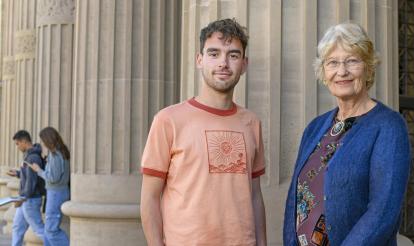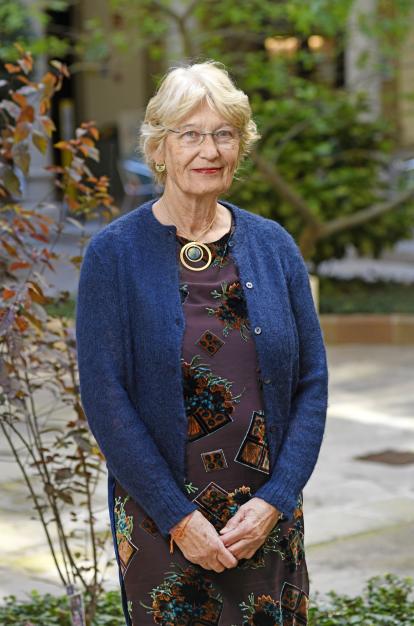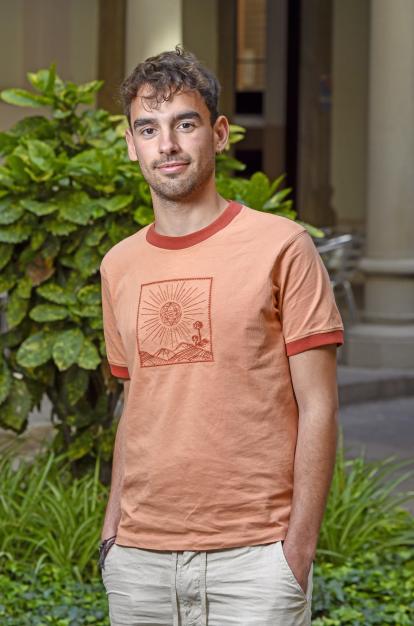
You are reading:

You are reading:

03.05.24
6 minutes readThe Fellowships programme of the ”la Caixa” Foundation has boosted the academic careers of more than 6,000 excellent students and researchers throughout its more than 40-year history. With this major milestone, the programme reaffirms its support for young talent and celebrates the total number of fellowships awarded so far: 147 bachelor fellowships, 3,878 postgraduate fellowships abroad, 1,719 doctoral fellowships and 273 postdoctoral fellowships in Spain and Portugal.
The Fellowships programme, which currently covers all levels of university education, was established with the aim of encouraging international mobility and promoting the academic excellence of outstanding students, to enable their access to the best universities and research centres in the world.
The first call for applications for postgraduate fellowships abroad for Spanish students was launched in 1982. Dr Susan Webb (Barcelona, 1952), currently emeritus professor at the Universitat Autònoma de Barcelona, coordinator of the Pituitary Diseases Research Group at the Hospital Sant Pau and president of the Comissió Assessora de Malalties Minoritàries of CatSalut, the Catalan Health Service, was part of that first promotion of fellows. Between 1983 and 1984, she did her postdoctoral research in reproductive neuroendocrinology at the University of Texas at San Antonio and the University of Minnesota: “It was a very positive experience for my academic career. I had the opportunity to complete my training in endocrinology by doing hormone experiments with experimental animals. I had a dozen publications in international journals that year, and that was obviously crucial for my career.”

In addition to furthering her academic training, Dr Webb acknowledges the importance of the Fellowships programme in her professional development and subsequent achievements: “I became a tenured professor at the Universitat Autònoma de Barcelona around 1988, and a full professor in 2010. All of this was partly thanks to what I achieved during my time as a ”la Caixa” Foundation fellow.”
Over the 40 years of the Fellowships programme, more than 400 million euros have been invested in supporting students and researchers to broaden their study and research goals – work that directly benefits society.
The professional career of Dr Susan Webb, an endocrinologist specialising in rare diseases, is a good example of the importance of supporting researchers: “During my residency, I did a rotation in endocrinology and was surprised to find that it’s a very physiological specialty, with very common pathologies such as diabetes or thyroid problems; but there are also rare diseases that affect other glands, such as the pituitary gland, which regulates the entire endocrine system.” Her interest in these rare diseases is also very social: “When you explain to a patient what’s happening to them after months or years of [them] knowing that something was wrong, they’re so grateful that a very special empathy is created between patient and professional. And it’s in those moments that you really realise you can help people. That has always been a source of fascination and joy for me.”

These first promotions of the postgraduate fellowships abroad have been joined over the years by the doctoral INPhINIT fellowships, in 2017, and the postdoctoral Junior Leader fellowships, in 2018, both to carry out research projects in Spain and Portugal. In addition, in 2021, the first call for bachelor fellowships was launched for excellent students with limited financial resources to start a university degree in one of Spain’s public universities.
Oriol Blázquez was awarded one of the bachelor fellowships in the first call and is currently studying medicine at the Universitat de Barcelona: “When I finished the baccalaureate, the field of research was what attracted me most, but I had doubts. Medicine didn’t close the doors to research and gave me the opportunity to include the social side of dealing with people, which also interested me a lot.” For Oriol, the ”la Caixa” Foundation fellowship has been a great help, allowing him to leave his home town of Lleida to study in Barcelona: “At a family and personal level, it’s a great support because it eases the financial burden, especially depending on the situation at home. In my case, we’re three siblings, and supporting three university courses and studying away from home was not sustainable.”
One of the key pillars of the ”la Caixa” Foundation’s Fellowships programme is the support provided to the fellows, as Blázquez explains: “We see some of our fellow graduates every month through video calls. In July, the fellows of my generation had a four-day meeting in Montserrat, where we all came together and were able to create a bit more of a network.”
This support therefore makes it possible to create a network of contacts and cooperation among fellows from the same promotion, to organise meetings to get to know members from previous promotions and to listen to their experiences and advice. “At the meetings held in summer and autumn, we can meet people from other generations or fellowship programmes and do a bit of networking. Having points of reference makes things easier because someone can explain their experience to you, so the path is not unfamiliar,” adds Blázquez.
This is in addition to the work of the Fellows Association, which was formally established in 1991, with two clear objectives: firstly, to maintain and develop relationships among them, exchanging information and providing mutual support. And secondly, to propose or suggest actions that may be of interest to this group. In fact, Susan Webb was chair of the Association from 2000 to 2004, a period she remembers fondly: “It was like giving back to the institution everything it had given me. And I also met a very diverse group of people from outside the medical field, such as economists, journalists, lawyers, engineers, artists... Getting to know all those different perspectives was very enriching.”
Webb’s involvement with the Fellowships programme goes beyond her own experience, and she has been closely involved in its development over the years, as one of her sons also won a postgraduate fellowship in 2010: “I didn’t say anything to the institution, obviously, but I encouraged him to apply and guided him through the interview and application process. It was a great joy to see him win the fellowship, which allowed him to go to Berlin to research neuropsychological aspects of the newly diagnosed AIDS patient.”
The stories of Susan Webb and Oriol Blázquez are two examples of how the Fellowships programme is a springboard for the talents of people who want to help build a better future for all: “From my promotion with 20 places to today, the Fellowships programme has grown a lot. It now stands on its own and has a lot of prestige,” says Webb. The careers of these fellows are undoubtedly the most evident personification of the programme’s solidity and its commitment to training excellence, mobility and professional qualification as fundamental keys to the development of individuals and society as a whole.